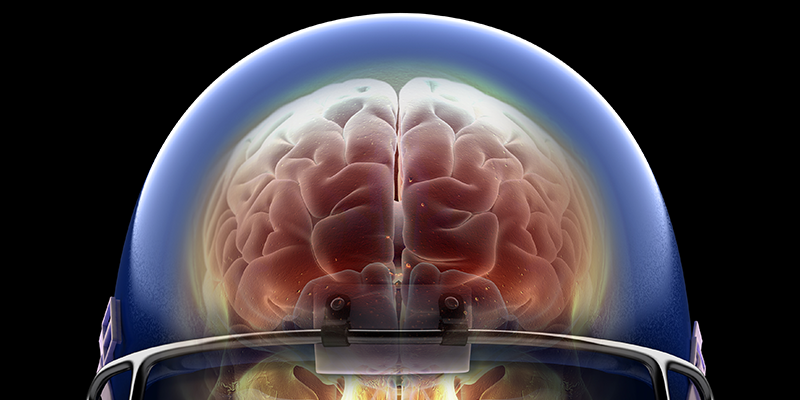
As we witness the cognitive deterioration of some of their brethren, many NFL players are quite concerned about the health of their brains. In a sport where some players may sustain up to 1,500 hits to the head each season, these concerns are certainly justified.
What Does Research Say?
A study led by Dr. Cyrus Raji at UCLA, showed the effects of traumatic brain injury on brain function (blood flow). Using SPECT imaging and cognitive testing, Dr. Raji and his team evaluated the brain function of 45 retired NFL players, and compared their results to the brain function of 25 male non-players.
The Results
They found several differences between the two groups, but most notably were two areas of abnormal, low blood flow in the brains of the NFL group that are also found in dementia, including Alzheimer’s disease:
• The temporal lobe: governs memory, language and learning
• The frontal lobe: responsible for executive functions such as thinking, focus and organization
 |
SPECT images from a group of 45 retired NFL players compared to 25 normal controls.
Purple and violet regions show increasingly abnormal areas of low blood flow (violet represents a larger deficit in blood flow than purple) in the cerebellum and right medial temporal cortex; the latter is frequently implicated in the pathology of Alzheimer’s disease. Image courtesy of Dr. Cyrus Raji, PhD. |
Fortunately, none of the players in this study had dementia, but that doesn’t mean they’re completely out of the woods. Blood delivers oxygen and glucose (the fuel) to the brain. Injured areas don’t draw enough blood to them thus they don’t get adequate amounts of oxygen and glucose, making them more vulnerable to dementia over time.
What Does TBI Mean for Pro Football Players?
One traumatic brain injury treatment for pro football players – and everyone else – is to always be proactive about brain health. Even with mild or severe traumatic brain injury.
There are many things you can do to help your brain rehabilitate starting with:
1. Feed and nourish it with good things like vegetables, fruits, protein and brain healthy supplements
2. Avoid processed foods, sugar, alcohol and street drugs
3. Work your brain like a muscle with mentally stimulating activities
4. Exercise regularly (with your doctor’s permission)
We Can Help
At Amen Clinics, we want to help you heal brain injuries before they affect your life. Call us today at 1-888-288-9834 or click here to ask a question.





No Comments »
No comments yet.
RSS feed for comments on this post.
Leave a comment